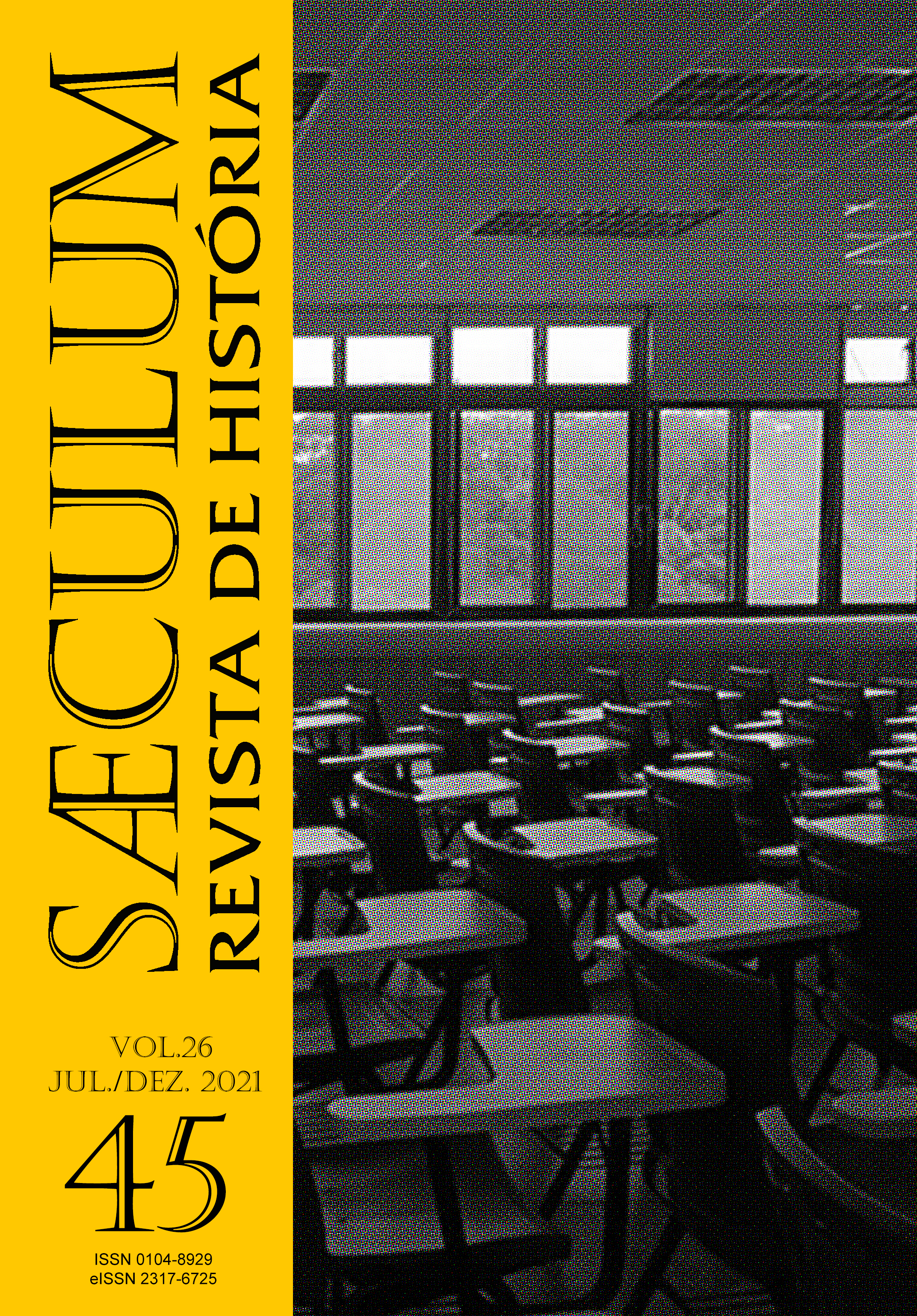The Negacionist Phenomenon and its Representations in the Cinematographic Narrative “Negação” (Denial – 2016)
DOI:
https://doi.org/10.22478/ufpb.2317-6725.2021v26n45.60197Keywords:
Holocaust, Negationism, Historiographical Narrative, Wrinting of HistoryAbstract
Considering the challenges inscribed in our present time, which influence historiographical practices and the paths of research, production and teaching of historical knowledge, our work aims to discuss some formal aspects of the negationist phenomenon represented in the plot of the cinematographic narrative “Denial” (Denial – 2016). In its plot, based on a true story, we see the legal debates between the historian Deborah Lipstadt, who was sued by David Irving, a notorious denier of the historicity of the Holocaust. Among the formal aspects that we have identified and analyzed are: I) the rhetorical structure of denial; II) the feeling of being an outsider; and III) the dimension of publicity pursued by the denier. To analyze the elements and dimensions of this phenomenon, we propose a dialogue with authors such as Jörn Rüsen, Eric Hobsbawm, Antoon De Baets and Michel de Pracontal. The various elements identified in the script of this film stimulate theoretical and methodological reflections on our craft and science, also stimulating the possibility of discussing some of the attacks of which several researchers, in particular, and scientific and academic knowledge, in general, have been targeted recurrently, inside and outside the academy.
Downloads
References
Fonte
Filme: Negação (Denial). Direção. Mick Jackson. Elenco. Rachel Wiesz, Tom Wilkinson, entre outros. Duração: 01h 50 min. Produção: EUA/Reino Unido. 2016.
Referências
ABBAGNANO, Nicola. Dicionário de Filosofia. 5. Ed. São Paulo: Martins Fontes, 2007.
BARROS, José D’Assunção. O Campo da História: especialidade e abordagens. Petrópolis: Vozes, 2004.
CARVALHO, Bruno Leal Pastor de. Por que há pessoas que negam o Holocausto? (Artigo). Café História – história feita com cliques. 30 dez. 2019. Disponível em: https://www.cafehistoria.com.br/por-que-negam-o-holocausto/. Acesso em 14 nov. 2021.
DE BAETS, Antoon. Uma teoria do abuso da história. Revista Brasileira de História, São Paulo, v. 33, n. 65, p. 17-60, 2013. Disponível em https://www.scielo.br/pdf/rbh/v33n65/02.pdf Acesso em 14 jan. 2021. DOI: https://doi.org/10.1590/S0102-01882013000100002
DENIS, Benoît. Literatura e Engajamento: de Pascal a Sartre. Bauru, São Paulo: Edusc, 2002.
ECO, Umberto. Seis Passeios pelos Bosques da Ficção. São Paulo: Companhia das Letras, 1994.
FERRO, Marc. Cinema e História. Rio de Janeiro: Paz e Terra, 1992.
GIRARDET, Raoul. Mitos e Mitologias Políticas. São Paulo: Companhia das Letras, 1987.
HOBSBAWM, Eric. Sobre história. São Paulo: Companhia das Letras, 1998.
LIMA, Helcira. Discursos negacionistas disseminados em rede. Revista da ABRALIN, v. 19, n. 3, p. 389-408, 17 dez. 2020. Disponível em https://revista.abralin.org/index.php/abralin/article/view/1758. Acesso em 22 jun. 2021.
LIPSTADT, Deborah. Negação: Uma história real. São Paulo: Universo dos Livros, 2017. (ebook)
PRACONTAL, Michel de. A impostura científica em dez lições. São Paulo: Ed. Unesp, 2004. (ebook)
ROSENFELD, Anatol. Mistificações Literárias: Os Protocolos dos Sábios de Sião. São Paulo: Editora Perspectiva, 2011.
ROUSSO, Henry. Le syndrome de Vichy: De 1944 à nos jours. Paris: Éditions Du Seuil, 1987.
RÜSEN, Jörn. Razão Histórica: Teoria da História: Os Fundamentos da Ciência Histórica. Brasília: Editora Universidade de Brasília (UNB), 2010.
VIDAL-NAQUET, Pierre. Os Assassinos da Memória: Um Eichmann de papel e outros ensaios sobre o revisionismo. Campinas, São Paulo: Papirus, 1988.
Downloads
Published
How to Cite
Issue
Section
License
Copyright (c) 2021 Danilo Linard

This work is licensed under a Creative Commons Attribution-NonCommercial 4.0 International License.
A revista Sæculum permite aos autores a manutenção dos direitos autorais pelo seu trabalho, no entanto eles devem repassar direitos de primeira publicação ao periódico.











